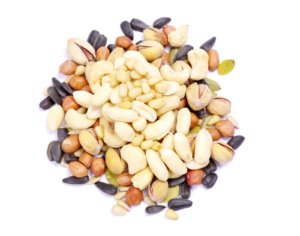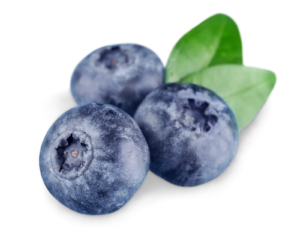Your diet plays a crucial role in your overall health, including the health of your eyes. In this post, we’ll discuss 10 foods that are good for your eye health, and explain why they are beneficial for your eyes. We’ll also describe the anatomy of the eye and use some simple analogies to help you understand how these foods can help to keep your eyes healthy and strong.
The Anatomy of the Eye

Before we dive into the list of foods that are good for your eye health, let’s take a quick look at the anatomy of the eye. The eye is a complex organ that is made up of several different parts, each of which plays a crucial role in allowing us to see.
The cornea is the clear, outermost layer of the eye. It helps to focus light on the retina, which is the light-sensitive layer of cells at the back of the eye. The retina converts light into electrical signals, which are sent through the optic nerve to the brain, where they are interpreted as images.
The lens is a clear, gel-like structure that sits behind the iris, the colored part of the eye. The lens helps to focus light on the retina, allowing us to see clearly.
The vitreous is a clear, gel-like substance that fills the space between the lens and the retina. It helps to maintain the shape of the eye and keep the retina in place.
Think of the eye like a camera. The cornea is like the lens of the camera, which focuses light on the film or sensor. The retina is like the film or sensor, which captures the light and converts it into an image. The lens and vitreous are like the internal mechanisms of the camera, which help to focus the light and maintain the shape of the camera.
10 Best Foods For Eye Health
Now that we have a basic understanding of the anatomy of the eye, let’s look at 10 foods that are good for your eye health.

- Leafy green vegetables: Leafy green vegetables, such as spinach, kale, and collard greens, are packed with vitamins and minerals that are good for your eyes. They contain high levels of lutein and zeaxanthin, which are antioxidants that can help to protect the eyes from damage caused by blue light and ultraviolet (UV) radiation.
- Fish: Fish, such as salmon, tuna, and mackerel, are rich in omega-3 fatty acids, which are good for your eye health. These fatty acids can help to reduce inflammation in the eyes and protect the cells of the retina.
- Eggs: Eggs are another good source of lutein and zeaxanthin, as well as other vitamins and minerals that are good for your eyes. Eating eggs can help to improve the health of the retina and reduce the risk of age-related macular degeneration (AMD), a common cause of vision loss in older adults.

- Nuts and seeds: Nuts and seeds, such as almonds, walnuts, and chia seeds, are packed with vitamins, minerals, and healthy fats that are good for your eyes. They contain high levels of vitamin E, which can help to protect the cells of the retina from damage.
- Citrus fruits: Citrus fruits, such as oranges, lemons, and grapefruit, are a good source of vitamin C, which is important for maintaining the health of the cornea. Vitamin C is an antioxidant that can help to protect the eyes from damage caused by free radicals, which are unstable molecules that can harm healthy cells.
- Sweet potatoes: Sweet potatoes are a good source of beta-carotene, which is a type of pigment that the body converts into vitamin A. Vitamin A is important for maintaining the health of the cornea and the retina. It can also help to reduce the risk of night blindness, a condition that makes it difficult to see in low light conditions.

- Blueberries: Blueberries are packed with antioxidants, including lutein and zeaxanthin, which can help to protect the eyes from damage caused by blue light and UV radiation. They are also a good source of vitamin C, which can help to maintain the health of the cornea.
- Carrots: Carrots are a well-known source of beta-carotene, which is converted into vitamin A in the body. Vitamin A is important for maintaining the health of the cornea and the retina. It can also help to reduce the risk of night blindness.
- Bell peppers: Bell peppers, especially red and yellow ones, are a good source of vitamin C, which can help to maintain the health of the cornea. They are also a good source of lutein and zeaxanthin, which can help to protect the eyes from damage caused by blue light and UV radiation.
- Whole grains: Whole grains, such as whole wheat bread, oatmeal, and quinoa, are a good source of zinc, which is important for maintaining the health of the retina. They are also a good source of other vitamins and minerals, such as vitamin B, which can help to improve the health of the optic nerve.
In conclusion
Your diet plays a crucial role in the health of your eyes. Eating a balanced diet that includes a variety of fruits, vegetables, nuts, and seeds can help to maintain the health of the cornea, lens, retina, and other parts of the eye. Some of the best foods for eye health include leafy green vegetables, fish, eggs, nuts and seeds, citrus fruits, sweet potatoes, blueberries, carrots, bell peppers, and whole grains. By incorporating these foods into your diet, you can help to keep your eyes healthy and strong.